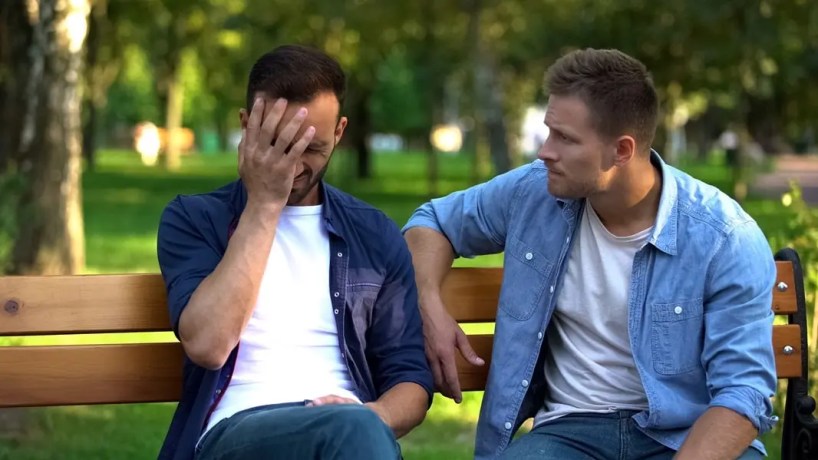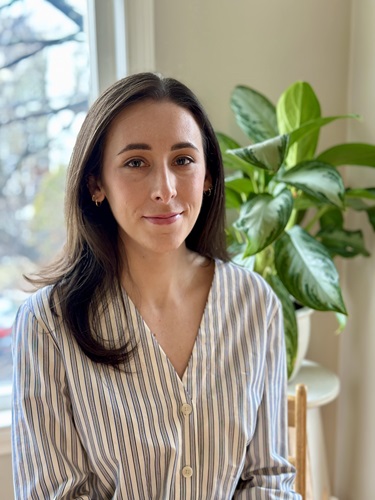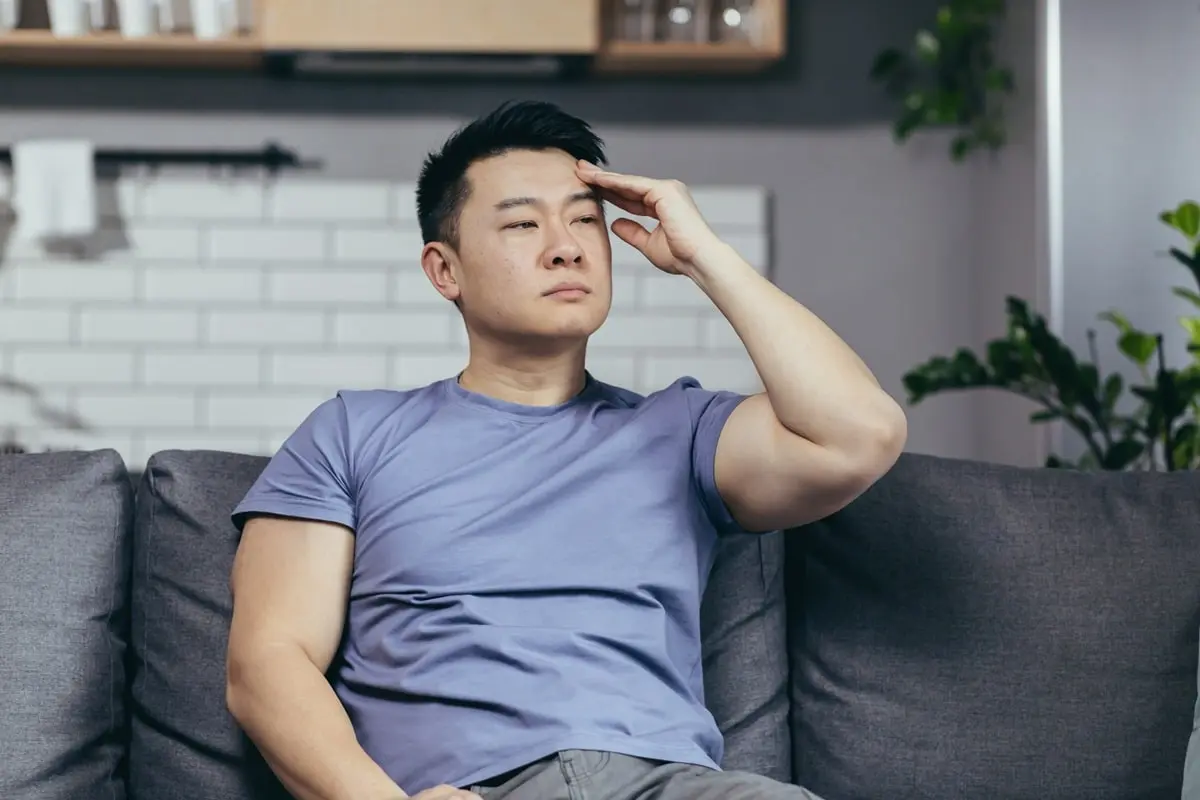The Reassurance Cycle
Definition and explanation
Asking for reassurance is a natural thing to do. However, constant reassurance seeking can become an unhealthy way to try to cope with anxiety and uncertainty.
Reassurance seeking can look like many things:
- Constantly asking your friend if they are mad at you.
- Repeatedly asking your girlfriend or boyfriend if they love you.
- Searching online to confirm you don’t have a medical problem, even though there’s very little evidence you have it, or despite a medical professional telling you that you don’t have the problem.
- Asking a coworker to double check your work many times for fear that you didn’t do something correctly.
- Searching online for definite answers to your questions even when you’ve probably already found all the information you can.
Reassurance seeking can feel productive in the moment, as if you’re finding out important information.
Excessive reassurance seeking works through a negative feedback loop. This means that asking for reassurance takes away some of your distress (temporarily). However, you probably notice that your distress returns, sometimes stronger than before. This feeds the cycle to ask for more reassurance, in the hopes that you might find new information or get a different answer.
Reassurance seeking is a trap – it keeps you buried in worry despite your efforts to find relief. However, there are ways out of this vicious cycle. If you can get better at tolerating the feelings that lead you to seek reassurance, you’ll gradually have less anxiety.
Reasons for Seeking Constant Reassurance
There are many reasons why you might find yourself caught in the cycle of reassurance seeking.
Obsessive-compulsive disorder
Obsessive-compulsive disorder (OCD) is a condition characterized by intrusive thoughts, images, or urges that cause distress, anxiety, or fear. It is also frequently characterized by behaviors that decrease the distress caused by intrusive thoughts. OCD can lead people to repeatedly seek reassurance in situations where most other people wouldn’t need it. More on OCD and reassurance below.
Insecure attachment style
According to attachment theories, there are different ways people form bonds with others which influence how you act in relationships. An insecure attachment style means that you might have difficulty trusting others. This can make it challenging to maintain relationships.
People with an insecure attachment style likely experienced unstable relationships growing up. As adults, it can be difficult for them to establish trust and closeness. Therefore, you might find yourself constantly seeking reassurance as a way to be certain that others will be there for you in times of need. Additionally, you might even have trouble trusting yourself because of emotional invalidation you experienced in the past.
Fear of abandonment
Perhaps you did not have your needs met or experienced significant loss in past relationships. If so, this can create a fear of being abandoned by loved ones. You might find yourself looking for reassurance about the strength of your bond with a loved one, or wanting certainty that this person will always be there for you. Unfortunately, this level of reassurance seeking can put strain on relationships. In the extreme, it can push people away altogether.
Low self-esteem
If you have negative thoughts or beliefs about yourself, you might struggle to trust yourself. Seeking reassurance may help you feel secure in moments when it’s hard to tolerate your own feelings. However, constantly seeking reassurance from others works against your self-confidence. You miss the opportunity to build trust in your ability to soothe yourself in moments of distress.
Communication breakdowns
Challenges with communicating your feelings or experiences can lead you to look for validation in your relationships. In the face of not knowing what your partner is thinking, or how they might truly feel, seeking reassurance might be a way for you to try to feel secure. However, repeated questioning of your partner can get in the way of effective communication. It can also increase tension in the relationship.
Unmet emotional needs
When you are not receiving emotional support or validation in a relationship, seeking reassurance might help you feel more secure in the short-term. The reassurance you might receive likely will not actually meet the deeper emotional need you have. Continuing to seek reassurance as a way to get your needs met will only leave you searching for more and more validation. It can also be a way you try to control your worry — especially when you can’t control other parts of your life.

Harmful Effects of OCD Reassurance Seeking
People with OCD seek reassurance because of difficulty tolerating the unknown. Doubt, worry, and fear caused by intrusive thoughts can lead to compulsive checking and reassurance seeking to find relief from distress. However, seeking reassurance as a way of coping with distress can inadvertently serve to maintain symptoms of OCD, rather than relieve them.
Examples of seeking reassurance in OCD include:
- Repeatedly asking your roommate if you locked the door.
- Asking a friend over and over if certain objects are contaminated or clean.
- Asking your friend in the passenger’s seat of your car if you hit someone while driving, when there is no evidence to suggest that you hit anyone.
- Apologizing repeatedly if you fear you might have done something bad, without a negative interaction having occurred.
In OCD, reassurance seeking can become its own type of compulsive behavior. Reassurance seeking can help lessen the intense responsibility you feel about your obsessive thoughts. However, as described above in other contexts, repeatedly seeking reassurance from others can increase relationship strain and bring communication challenges.
Reassurance Seeking and Health Anxiety
When you have an uncomfortable or unpleasant sensation in your body, you might experience anxiety about what it could mean. Does this chest pain mean I’m having a heart attack? Reassurance seeking in health anxiety can entail asking loved ones about a physical symptom or reaching out repeatedly to health professionals.
For example, let’s say you wake up one morning with a headache. This leads you to worry that you have brain cancer. You then ask your partner if they think you have brain cancer. Even though they tell you it’s most likely due to your stressful work week, you continue to worry that the headache truly is a sign of brain cancer. Throughout the rest of the day, you repeatedly ask them about what your symptom could mean. This frustrates your partner and your continuous anxiety around your health makes it hard for you to focus on your work and responsibilities.
How to Stop Seeking Reassurance
Fortunately, reassurance seeking is something you have some control over. Here are some of the important steps in breaking the cycle:
Identifying triggers and patterns
The first step to reducing your need for reassurance is to understand what triggers that need. For many people, anything that creates doubt or concern can start the reassurance seeking cycle.
It can be an offhand comment from a romantic partner, a physical sensation that others would ignore, or a sudden doubt that you completed an important task earlier. Take some time to think about where you struggle with accepting uncertainty that causes you to want to seek reassurance.
Getting comfortable with uncertainty
Uncertainty is a natural part of life, no matter how hard you try to avoid it. Look for small ways you can start to practice building your comfort with uncertainty.
As you keep yourself from seeking reassurance about uncertainty, you might notice your anxiety and worry thoughts get temporarily stronger. This is natural. The more you continue to resist immediately responding to those worry thoughts with asking for reassurance, the better you will become at experiencing uncertainty. Remind yourself that uncertainty does not always mean there is a real threat.
Building self-confidence and self-worth
When you experience self-doubt, you might be tempted to ask others for affirmation and validation. Finding ways to cultivate confidence may help you soothe your own uncertainties and buffer against reassurance seeking. For example, you might try using positive realistic self-talk during difficult times, or setting realistic goals for yourself, as a way to help build your self-worth. This can help to decrease your self-doubt and show you your own capability.
Practicing self-compassion
Further, building compassion towards yourself can help improve your ability to tolerate distress. It can also help you soothe yourself in difficult times so that the urge to seek reassurance doesn’t even arise. It can also help you make sense of times that are more challenging, rather than judging yourself.
Developing healthy coping mechanisms
Sitting with uncertainty can be difficult and unpleasant. However, it’s helpful to find other ways to manage your anxiety and cope with distress instead of seeking reassurance.
For short-term relief, you might use distraction to help you reduce distress. Over the long term, building skills that help you challenge unhelpful thoughts can help you manage anxiety and obsessive thoughts.
Mindfulness exercises can help increase your awareness of your thoughts and sensations in a non-judgmental manner. Exercises like guided imagery or breathing techniques can increase relaxation, which can buffer against distress.

The Impact of Excessive Reassurance Seeking on Relationships
Strain on the partner
The cycle of reassurance seeking can be challenging for partners and loved ones. Reassurance seeking does not ultimately ease your doubts and can cause your loved one frustration or a sense of mistrust.
For example, asking your partner over and over if they truly love you might make them feel that their words or actions aren’t enough. Excessively seeking reassurance or affirmation from your partner about this can leave them feeling resentful and frustrated.
Communication and trust issues
Patterns of reassurance seeking might lead you to look for new problems in your relationship. The reassurance itself typically reduces your tolerance for even small doubts on the relevant topic. For example, let’s say you’ve developed a habit of asking your romantic partner if they really love you whenever you feel a slight doubt. This can weaken your ability to tolerate doubt on related issues. Perhaps you’ll find that them texting their friend now leaves you feeling insecure when it didn’t before, and wanting to ask them for reassurance about it.
Your partner might come to feel like nothing they say can ease your worry. You also might feel confused about why you still feel so much anxiety, despite getting assurance from others. These situations can create an atmosphere of mistrust in the relationship.
Guidance for Both the Reassurance Seeker and Their Partner
Reassurance seeker: Developing self-soothing techniques
When you experience worry or doubt, engaging in self-soothing skills can help replace the urge to seek reassurance. Repeating a phrase or mantra to yourself based in self-compassion may help remind you that you can manage this feeling. Phrases like “I can tolerate not knowing” and “I can handle whatever comes my way” can help instill confidence in difficult moments. Breathing techniques and mindfulness practices are other ways to self-soothe during times of stress.
Partner: Setting boundaries and providing support
When your loved one seeks excessive reassurance, it can be hard to know how to help them. Although reassuring them may feel helpful in the moment, it actually increases their need for future reassurance. Instead, try to provide them support and validation about the feelings they are having. You could tell them “I know it’s hard to feel like you don’t have all the answers” or “I can tell that this is really important to you.” These types of supportive comments may help them feel understood.
Perhaps most important is setting boundaries around not providing the assurance they are looking for. When they ask for reassurance, you could tell them “I don’t know” or simply that “Giving you reassurance won’t help you feel better. I am not going to answer your question because I care for you.” While such boundary setting might upset them in the short term, it will help break the cycle over time. It will help keep the relationship healthy. It will also allow them the opportunity to find new ways to cope with distress.
If you’re having trouble stopping your reassurance-seeking habit, please contact us. Cognitive-behavioral therapy may help.









